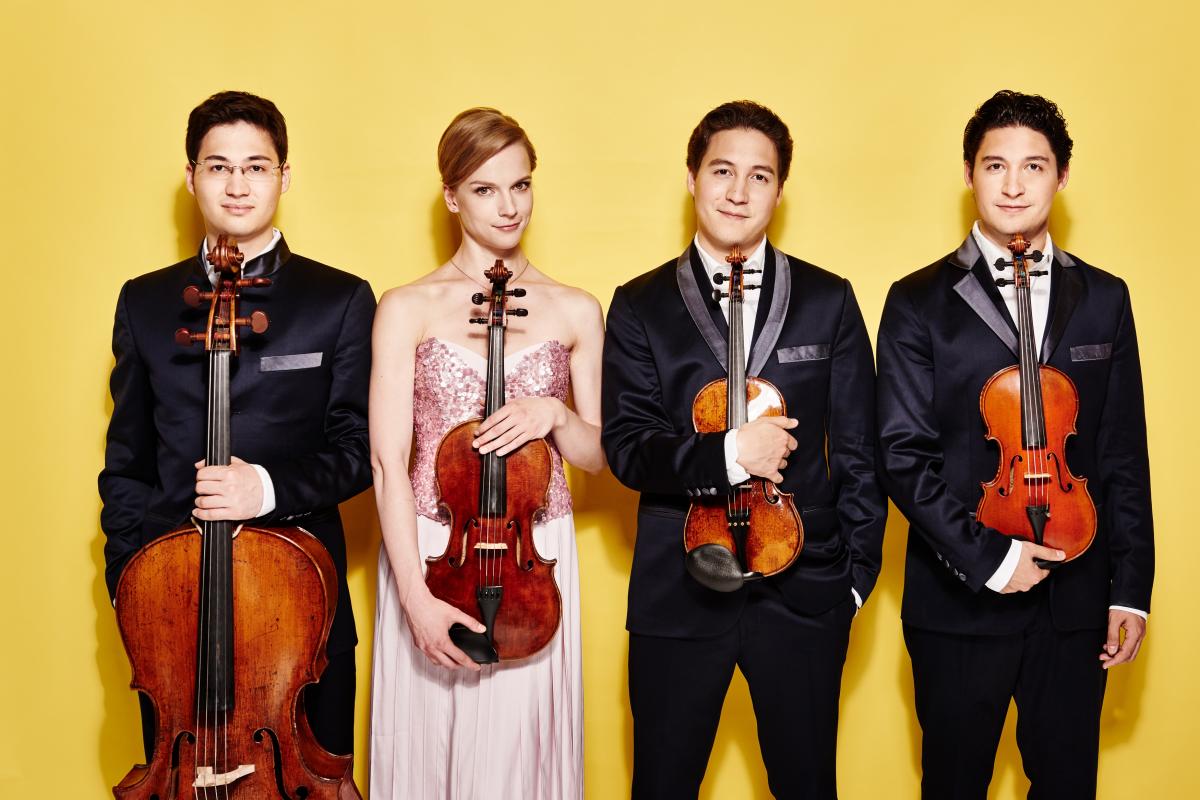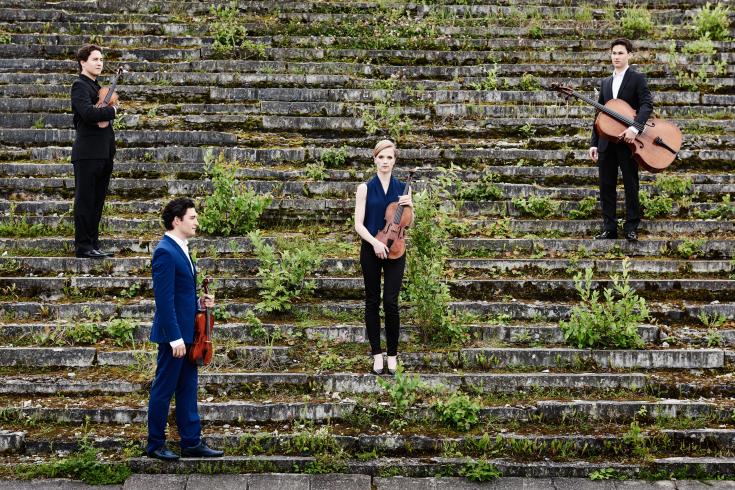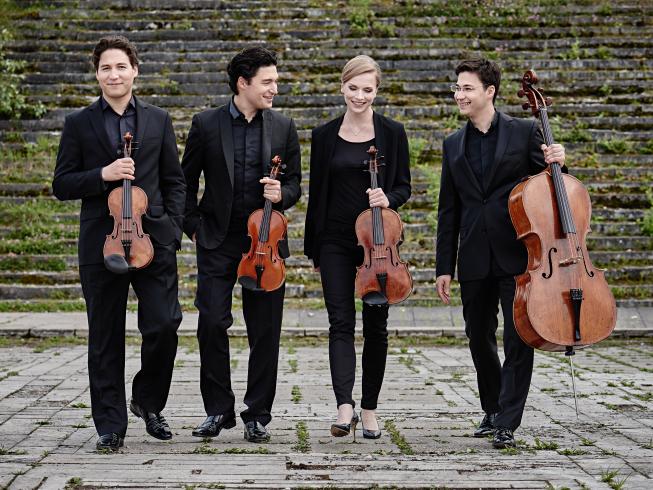Schumann Quartett
String Quartet

The Schumann Quartett will make their return to the Phillips with works by Haydn, Shostakovich, and Tchaikovsky.
Program
The Schumann Quartett takes its name from the three brothers—Mark, Erik, and Ken Schumann—who founded this ensemble in 2007. Estonian viola player Liisa Randalu joined the quartet in 2012. In 2016, the Schumann Quartett began a three-year residency at the Chamber Music Society of Lincoln Center, and their international reputation has been enhanced by very successful concerts in Vienna, Amsterdam, London, and Zürich as well as a tour in Japan. Noted for their creative choice of repertory, their concert includes Haydn’s glorious “Sunrise” Quartet alongside two Russian works: Shostakovich’s Quartet No. 7 and Tchaikovsky’s Quartet No. 3.
PROGRAM:
FRANZ JOSEPH HAYDN (1732-1809)
String Quartet No. 63 in B-flat Major (“Sunrise”), Op. 76/4, H. 3/78 (1797)
Allegro con spirit
Adagio
Menuet. Allegro & Trio
Finale. Allegro ma non troppo
DMITRI SHOSTAKOVICH (1906-1975)
String Quartet No. 7 in F-sharp minor, Op. 108 (1960)
Allegretto
Lento
Allegro
INTERMISSION
PYOTR ILYICH TCHAIKOVSKY (1840-1893)
String Quartet No. 3 in E-flat minor, Op. 30 (1876)
Andante sostenuto - Allegro moderato
Allegretto vivo e scherzando
Andante funebre e doloroso, ma con moto
Finale. Allegro non troppo e risoluto
About the Artists
Introduction. That moment when one doesn’t yet know what’s happening, eyes and ears wide open, looking for some kind of orientation. At the start of Beethoven’s ninth string quartet, for example. One unresolved chord after the other, and the four musicians relish the moment, accentuate – very subtly – the lack of orientation, reducing all knowledge to the absolute now. The Schumann Quartett has reached a stage where anything is possible, because it has dispensed with certainties. This also has consequences for the listeners, who from concert to concert have to be prepared for all eventualities: “A work really develops only in a live performance,” the quartet says. “That is the ‘real thing’, because we ourselves never know what will happen. On the stage, all imitation disappears, and you automatically become honest with yourself. Then you can create a bond with the audience – communicate with it in music.”
This live situation will gain an added energy in the near future: Sabine Meyer, Menahem Pressler and Albrecht Mayer will all give concerts with the Quartet. The main highlight of the 2016/2017 season is the beginning of their three-year residency at Chamber Music Society of Lincoln Center in New York City. The season will also see a tour to Japan, concerts at festivals like the Rheingau and the Schleswig Holstein Music Festival, return engagements at Tonhalle in Zurich, Wigmore Hall in London, and in Munich. Furthermore in 2017 their next album Landscape will be released with a combination of works by Haydn, Bartók, Takemitsu, and Pärt - hence tracing their roots. For their previous album they were awarded with the BBC Music Magazine Award as Best Newcomers of the Year.
The three brothers Mark, Erik, and Ken Schumann, who grew up in the Rhineland, have been playing together for five years. In 2012, they were joined by violist Liisa Randalu, who was born in the Estonian capital, Tallinn, and grew up in Karlsruhe, Germany. Those who experience the quartet in performance often remark on the strong connection between its members. The four musicians enjoy the way they communicate without words: how a single look suffices to convey how the other wants to play a particular passage. Although the individual personalities clearly manifest themselves, a common space arises in every musical work in a process of spiritual metamorphosis. The quartet’s openness and curiosity may be partly the result of the formative influence exerted on it by teachers such as Eberhard Feltz, or partners such as Menahem Pressler.
Album publications, study with the Alban Berg Quartet, a residency of many years at the Robert-Schumann-Saal in Düsseldorf, winning the prestigious Concours de Bordeaux along with other awards, and various teachers and musical partners – it is always tempting to speculate on what factors have led to many people viewing the Schumann Quartett as one of the best in the world, but the four musicians themselves regard these stages more as encounters, as a confirmation of the path they have taken. They feel that their musical development over the past two years represents a quantum leap. “We really want to take things to extremes, to see how far the excitement and our spontaneity as a group take us,” says Ken Schumann
And the critics approve: “Fire and energy. The Schumann Quartet plays staggeringly well….without doubt one of the very best formations among today’s Quartet offspring….with sparkling virtuosity and a willingness to astonish,” says Harald Eggebrecht in Süddeutsche Zeitung. So there is plenty of room for adventure.

